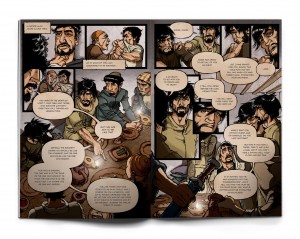It’s more fun in the Philippines – Part 2
 In Part 1 I spoke of the lead up to my trip. This story is the story of my trip so I will begin with my initial impressions. When I last left Paul had spoken to Ben. My shepherd’s last words of advice to me were to be careful not to become married or introduced. He said Filipinos were “crazy for Americans” and that “it wasn’t my time”. With that I departed for the Philippines. Although I started the story and have proceeded chronologically I will depart from this to explain some major lessons from my time in the Philippines.
In Part 1 I spoke of the lead up to my trip. This story is the story of my trip so I will begin with my initial impressions. When I last left Paul had spoken to Ben. My shepherd’s last words of advice to me were to be careful not to become married or introduced. He said Filipinos were “crazy for Americans” and that “it wasn’t my time”. With that I departed for the Philippines. Although I started the story and have proceeded chronologically I will depart from this to explain some major lessons from my time in the Philippines.
A Graphic Realization of Luke 22-24
I recommend  The Third Day especially for those who like comics. This small book of 48 colorful pages contains the Bible text of Luke 22-24 (in the Holman Christian Standard Bible) with graphic drawings that illustrate the text with drama, detail, emotion and passion, which engages you and draws you into the Easter story. This picture is of Lk 23:23 showing Jesus before an angry crowd, held back by Roman soldiers, demanding his crucifixion.
The Third Day especially for those who like comics. This small book of 48 colorful pages contains the Bible text of Luke 22-24 (in the Holman Christian Standard Bible) with graphic drawings that illustrate the text with drama, detail, emotion and passion, which engages you and draws you into the Easter story. This picture is of Lk 23:23 showing Jesus before an angry crowd, held back by Roman soldiers, demanding his crucifixion.
Law and Grace, Moses and Paul
 Is there a conflict between law and grace? Does Paul contradict Moses?
Is there a conflict between law and grace? Does Paul contradict Moses?
Grace alone. Alternate perspectives and counter comments have previously been bantered about, but I thought it good to articulate in one article the (Reformed) perspective that best expresses my understanding and my faith. The key is that only the grace of God (never man’s merit) leads to redemption and blessing, both in the OT and NT.
Critique My 6th Deuteronomy Sermon: One
 Thanks so much Joe, Brian, Sharon, David, Chris, others for your liminal inducing comments on my sermons on Deuteronomy: Sin (chap. 1), Leadership (Dt 1:9-18), Faith (chap. 2-3), Obedience (chap. 4) and Law (chap. 5). This sixth sermon is on the Shema (meaning “Hear”). It is from the most famous chap. in Deuteronomy since Jesus chose the great command from Dt 6:5. My theme and thesis is that true spirituality is loving God, which arises from the heart and extends to all of life. I will likely begin my sermon as follows:
Thanks so much Joe, Brian, Sharon, David, Chris, others for your liminal inducing comments on my sermons on Deuteronomy: Sin (chap. 1), Leadership (Dt 1:9-18), Faith (chap. 2-3), Obedience (chap. 4) and Law (chap. 5). This sixth sermon is on the Shema (meaning “Hear”). It is from the most famous chap. in Deuteronomy since Jesus chose the great command from Dt 6:5. My theme and thesis is that true spirituality is loving God, which arises from the heart and extends to all of life. I will likely begin my sermon as follows:
What if God loves Esau?
 During my arranged marriage process, someone asked my wife, “Do you want to marry a man like Jacob or like Esau?” My wife said Jacob, of course. And so I was deemed her “Jacob”. I suppose my wife didn’t realize I am probably more like Esau than Jacob, but that’s a story for another article. Last year I began reading some of the classic books by authors who have contributed much to the kingdom of God, due to my participation in two different cohort study groups. I am reading a range of authors from Dietrich Bonhoeffer and Brother Lawrence to John H. Armstrong, Lesslie Newbiggin and Henri Nouwen. I’ve also read numerous un-fundamentalist bloggers, such as Benjamin Corey and Rachel Held Evans. These authors challenged me to expand and refine my notion of “church”, the love of God and the grace of God. Through all of this reading, the Holy Spirit impressed various words on me, and guided me through hundreds of Scriptures.
During my arranged marriage process, someone asked my wife, “Do you want to marry a man like Jacob or like Esau?” My wife said Jacob, of course. And so I was deemed her “Jacob”. I suppose my wife didn’t realize I am probably more like Esau than Jacob, but that’s a story for another article. Last year I began reading some of the classic books by authors who have contributed much to the kingdom of God, due to my participation in two different cohort study groups. I am reading a range of authors from Dietrich Bonhoeffer and Brother Lawrence to John H. Armstrong, Lesslie Newbiggin and Henri Nouwen. I’ve also read numerous un-fundamentalist bloggers, such as Benjamin Corey and Rachel Held Evans. These authors challenged me to expand and refine my notion of “church”, the love of God and the grace of God. Through all of this reading, the Holy Spirit impressed various words on me, and guided me through hundreds of Scriptures.
Continue reading →
Read the Bible – Trying and Doing
 Do you read the Bible daily? I believe that all Christ followers know that we should read the Bible regularly, consistently and faithfully, if not daily. Do you? For a decade in the 80s and 90s, I read the entire Bible once a year. But I only read the Bible and nothing else. Over the last few years, I began reading Bible commentaries and books to help me understand the Bible. But I stopped reading the Bible alone. My Bible reading was to read books explaining the Bible. I read books to help me prepare for sermons, Bible studies and blogging. I felt guilty that I stopped reading the Bible out of love and devotion to Christ, but as a means to preaching, teaching and blogging.
Do you read the Bible daily? I believe that all Christ followers know that we should read the Bible regularly, consistently and faithfully, if not daily. Do you? For a decade in the 80s and 90s, I read the entire Bible once a year. But I only read the Bible and nothing else. Over the last few years, I began reading Bible commentaries and books to help me understand the Bible. But I stopped reading the Bible alone. My Bible reading was to read books explaining the Bible. I read books to help me prepare for sermons, Bible studies and blogging. I felt guilty that I stopped reading the Bible out of love and devotion to Christ, but as a means to preaching, teaching and blogging.
The Power of “And”
 Word clouds are fascinating to me. For example, copy and paste some text into wordle.net and you’ll be able to create a visual image of the most repeated words in the text. Someone did this with the bible, and found the word “Lord” is the most repeated word in the bible. I’ve since found a renewed interest in bible study through asking such questions. For example, what is the most repeated command in the bible? Many have done this research and found the most repeated command to be: do not be afraid! “Fear not” is the Lord’s repeated command throughout Scripture.
Word clouds are fascinating to me. For example, copy and paste some text into wordle.net and you’ll be able to create a visual image of the most repeated words in the text. Someone did this with the bible, and found the word “Lord” is the most repeated word in the bible. I’ve since found a renewed interest in bible study through asking such questions. For example, what is the most repeated command in the bible? Many have done this research and found the most repeated command to be: do not be afraid! “Fear not” is the Lord’s repeated command throughout Scripture.
The Fear of “if”
 If. It is a small word, just two letters. I like the word better in Russian, “если”. Or perhaps in French, “si” or German “wenn”. And even though I can’t pronounce it, the word “if” looks better in Korean, “면” and in traditional Chinese, “如果”. Still, no matter what language you use to say the word “if”, the word strikes fear into my heart. Are you afraid of “if”? This week’s private discussions and in-person dialogues have prompted me to share my thoughts on this basic fear.
If. It is a small word, just two letters. I like the word better in Russian, “если”. Or perhaps in French, “si” or German “wenn”. And even though I can’t pronounce it, the word “if” looks better in Korean, “면” and in traditional Chinese, “如果”. Still, no matter what language you use to say the word “if”, the word strikes fear into my heart. Are you afraid of “if”? This week’s private discussions and in-person dialogues have prompted me to share my thoughts on this basic fear.
Is Psalm 119 a Love Poem About the Bible? (Part 2)
 My job requires that I leave my home in Pennsylvania to spend part of each week in the Washington metropolitan area. While away from home, I miss my wife. We stay in touch through phone calls, text messages and email. But on the long drive home each Thursday, my greatest desire is to be physically present with her again. Now imagine this. (Disclaimer: The following scene is purely fictitious.) On Thursday night, I walk through the back door into our house. The frantic barking and jumping of our dog has announced my arrival, so Sharon knows that I am there. But she barely acknowledges my presence. She stays seated on the sofa, staring at her iPad, studying a short email message that I had sent her that morning. She is poring over my every word, trying to guess all the thoughts and intentions behind my message. In her creative imaginings, she projects her own thoughts into my words and conjures up some hidden meanings that I never intended to convey. She starts to craft a lengthy, detailed written response that will probably take her several hours to complete before she emails it to me the following morning. I’m thinking, “What the heck is she doing? She’s stressed out and tired, but she still looks incredibly beautiful. Why won’t she stand up and give me a hug? Why won’t she look at me? Why won’t she talk to me?” And she keeps looking down, her eyes glued to that darned iPad…
My job requires that I leave my home in Pennsylvania to spend part of each week in the Washington metropolitan area. While away from home, I miss my wife. We stay in touch through phone calls, text messages and email. But on the long drive home each Thursday, my greatest desire is to be physically present with her again. Now imagine this. (Disclaimer: The following scene is purely fictitious.) On Thursday night, I walk through the back door into our house. The frantic barking and jumping of our dog has announced my arrival, so Sharon knows that I am there. But she barely acknowledges my presence. She stays seated on the sofa, staring at her iPad, studying a short email message that I had sent her that morning. She is poring over my every word, trying to guess all the thoughts and intentions behind my message. In her creative imaginings, she projects her own thoughts into my words and conjures up some hidden meanings that I never intended to convey. She starts to craft a lengthy, detailed written response that will probably take her several hours to complete before she emails it to me the following morning. I’m thinking, “What the heck is she doing? She’s stressed out and tired, but she still looks incredibly beautiful. Why won’t she stand up and give me a hug? Why won’t she look at me? Why won’t she talk to me?” And she keeps looking down, her eyes glued to that darned iPad…
Some centuries after Psalm 119 was composed, Yahweh burst through our back door. He entered our world to physically insert himself into our history and experience. Our understanding of Psalm 119 will be sub-Christian unless we hold in the forefront of our minds the fact that it was penned in the B.C. era. That was before the shockwave named Jesus started reverberating through the cosmos. That was before anyone could imagine that someone would write (Hebrews 1:1-3):
Is Psalm 119 a Love Poem About the Bible? (Part 1)
 Your word is a lamp for my feet, a light on my path (Ps 119:109).
Your word is a lamp for my feet, a light on my path (Ps 119:109).
Psalm 119, the longest chapter in the Bible, has two prominent features. First, it is an acrostic poem. It has 22 stanzas corresponding to the 22 characters of the Hebrew alphabet, and each verse within a stanza begins with the appropriate character. Second, nearly every verse of this psalm contains a reference to Torah. The psalmist refers to Torah by various terms which, depending on the English translation, are rendered as God’s word(s), his law(s), precepts, commands, statutes, decrees and promises.
Among conservative evangelical Christians, Psalm 119 has two common and related interpretations. This psalm, together with other passages such as 2 Timothy 3:16 (“All Scripture is God-breathed…”), Isaiah 55:11 (“…so is my word that goes out from my mouth: It will not return to me empty, but will accomplish what I desire…”) and Psalm 19:7 (“The law of the Lord is perfect…”), are often used as proof-texts to establish doctrines of the Bible’s divine inspiration, infallibility, and inerrancy. Second, this psalm is often used by pastors and teachers to exhort people to read, study, memorize and meditate on the Bible. The psalmist is held up as a positive role model for us to follow in our attitude and approach to Scripture. Psalm 119 is seen as a Christian love poem about the Bible.


Last 30 Comments